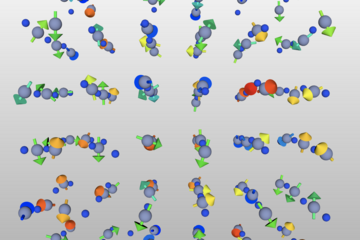All genres
1.
Journal Article
Monolayer formation of Octyltrimethoxysilane and 7 Octenyltrimethoxysilane on silicon(100) covered with native oxide. Applied Surface Science 258 (7), pp. 3191 - 3196 (2012)
2.
Poster
Chemical Modification of silicon (100) through self-assembled monolayer formation of silanes. 109th Annual meeting of the German Bunsen Society of Physical Chemistry (Bunsentagung), Bielefeld, Germany (2010)
3.
Thesis - Master
Modification of semiconductor surfaces with bifunctional polymerizable silanes. Master, Faculty of Chemistry and Biochemistry, Ruhr University Bochum, Bochum, Germany (2010)











